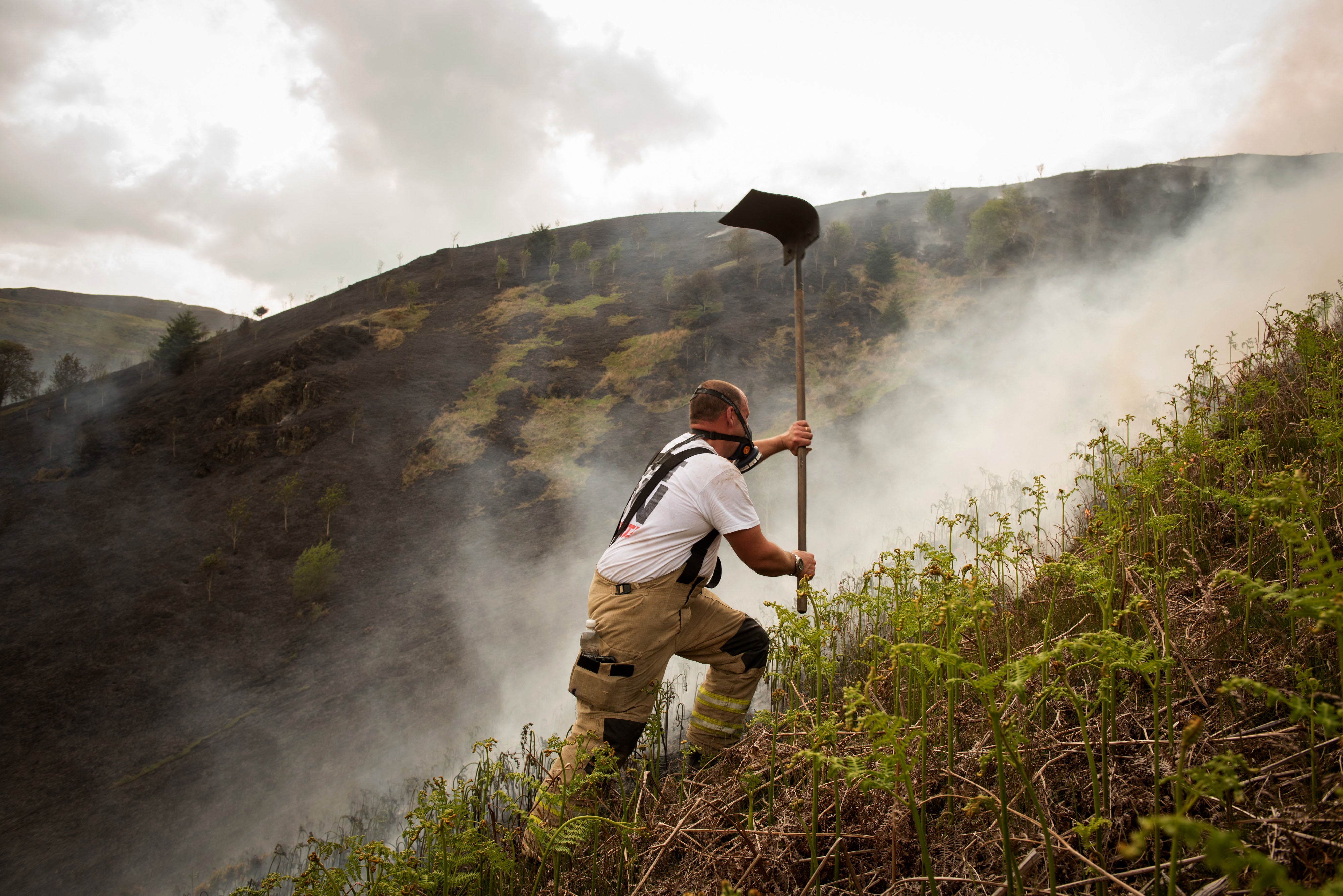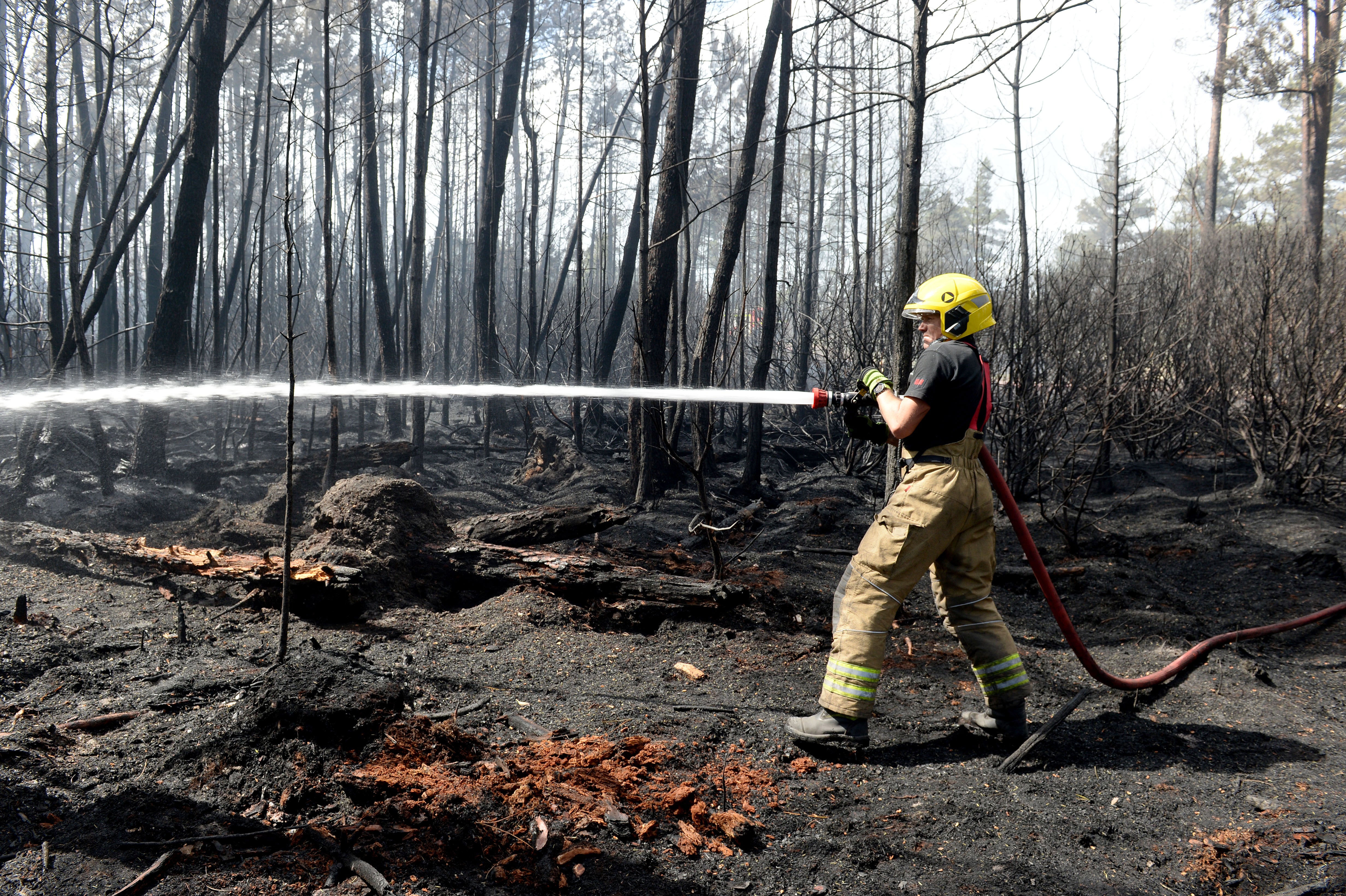UK less prepared for climate crisis now than five years ago, government advisers warn
Worsening effects threaten country’s ability to achieve net-zero emissions by 2050, experts say

Your support helps us to tell the story
From reproductive rights to climate change to Big Tech, The Independent is on the ground when the story is developing. Whether it's investigating the financials of Elon Musk's pro-Trump PAC or producing our latest documentary, 'The A Word', which shines a light on the American women fighting for reproductive rights, we know how important it is to parse out the facts from the messaging.
At such a critical moment in US history, we need reporters on the ground. Your donation allows us to keep sending journalists to speak to both sides of the story.
The Independent is trusted by Americans across the entire political spectrum. And unlike many other quality news outlets, we choose not to lock Americans out of our reporting and analysis with paywalls. We believe quality journalism should be available to everyone, paid for by those who can afford it.
Your support makes all the difference.The UK is less prepared now than it was five years ago for the escalating effects of the climate crisis on people and wildlife, according to the government’s own advisers.
As CO2 levels continue to climb, the UK is experiencing more intense heatwaves, wildfires and floods, and greater risks to its food supply and health systems, the experts say.
But the rise in climate effects is not being met with sufficient action from the government, says the assessment from the UK’s independent Climate Change Committee (CCC).
The panel warns there is a “growing gap” between the risks that Britons face from the climate crisis and the action being taken by the government to adapt to them.
UK temperatures have already risen by 1.2C since the period 1850-1900, while average sea levels have risen by some 16cm, the report says. Chances of an extreme heatwave like the one suffered in 2018 occurring in any given year are now up to 25 per cent, against less than 10 per cent a few decades ago.
And many of the UK’s worsening climate effects are now “baked in” for decades to come, according to the report, which was compiled by more than 450 scientists and experts across the UK.
By 2050, the chances of an extreme heatwave occurring in any year could reach 50 per cent, while sea levels could rise to be a further 10cm-30cm above those of 1981-2000.
“The overall level of risk facing the UK has increased over the last five years and adaptation is not keeping pace with the rate at which the climate is changing,” Baroness Brown of Cambridge, chair of the CCC’s adaptation committee, said on Monday.
“We’ve heard so much about ‘net zero’ but I think it’s really important to reinforce the point that ‘net zero’ doesn’t solve this problem. The climate will go on changing at least until 2050 and some of the aspects of climate change, such as sea level rise, will go well beyond that.”
She described the government’s lack of an action plan for dealing with the effects of the climate crisis as “absolutely illogical” given that many climate adaptation measures would also benefits people and wildlife.
For example, restoring wild habitats could boost resilience against extreme weather such as flooding, while also helping to reverse nature loss.
And retrofitting Britain’s leaky and poorly ventilated homes could reduce energy use while helping to improve human health and wellbeing.
Unless urgent action is taken, escalating climate effects could even threaten efforts to reach the UK’s legal target of net-zero emissions by 2050, added Chris Stark, chief executive of the CCC.
“There’s potential for climate change itself to undermine the progress we can make on net zero overall,” he told the briefing.
One way this could occur is the effect of worsening heatwaves, wildfires and droughts on forests and other natural ecosystems, which act as vital carbon stores.
“We cannot expect nature to mop up all that carbon if it’s too dry for the trees to grow,” he said.

The report is the third comprehensive assessment of the risks posed to the UK by the climate crisis.
The 1,500-page assessment examines 61 “risks and opportunities” posed by the climate crisis in the UK. The analysis considers risks across every aspect of life in the UK, from natural ecosystems to UK businesses.
It finds that the need for adaptation to these climate risks has increased since the last assessment was carried out in 2016.
A total of 56 per cent of the risks included in the report were given the “highest urgency” score – meaning that more action is needed in the next five years if the UK is to sufficiently cope with the risk. This compares with 36 per cent for the last assessment report in 2016.
In addition, 14 of the identified climate risks have increased in magnitude over the past five years while none of the risks have lessened, according to the assessment.
Green party MP Caroline Lucas described the findings of the report as devastating.
“[It lays] out in forensic detail the cost of successive governments’ failure to take the necessary action on the climate emergency,” she said.
“Almost every warning light on the climate dashboard is going from amber to red. This has to serve as a call to action, far beyond the piecemeal policies and programmes the government has put in place.”
The findings show that the UK is falling behind despite its claim of being a climate leader ahead of Cop26, a key global conference being hosted by the government in Glasgow in November, said Doug Parr, policy director and chief scientist at Greenpeace UK.
“Change is now inevitable and it’s time the government pulls its finger out to ensure we’re ready to face the challenges the climate crisis poses,” Dr Parr said.
“That means bringing forward detailed, well funded measures on everything from proper housing standards making them fit for living in a warmer world, to investment in soils and nature restoration. Putting money behind good action now will see us paid back many times through the benefits our society will reap.”
A government spokesperson said: “The UK was the first major world economy to set a target of net zero greenhouse gas emissions by 2050. Our plan to further reduce emissions in 2035 by at least 78 per cent compared to 1990 levels is the highest reduction target by a major economy to date.
“As we work to eliminate the UK’s contribution to climate change and build back greener after the pandemic we will increase biodiversity, protect and restore our peatlands, clean up our country’s air and help protect our waterways through our landmark Environment Bill.
“We welcome this report and will consider its recommendations closely as we continue to demonstrate global leadership on climate change ahead of Cop26 in November.”
Join our commenting forum
Join thought-provoking conversations, follow other Independent readers and see their replies
Comments